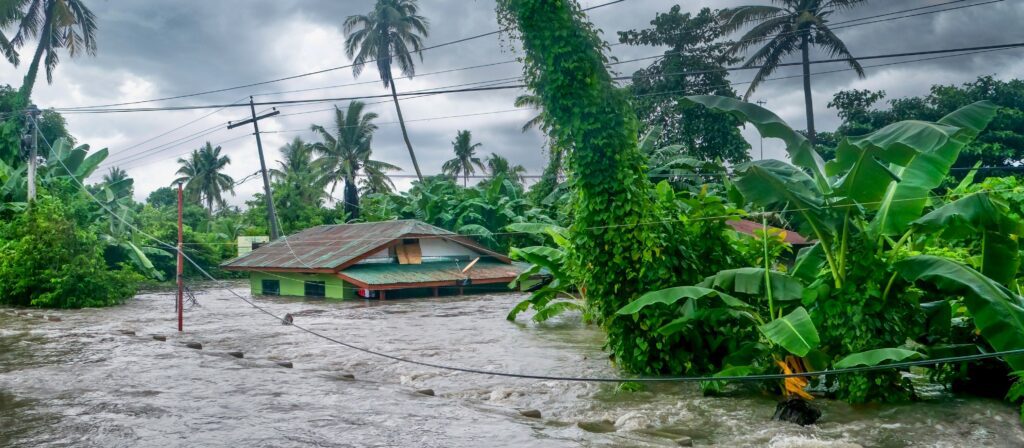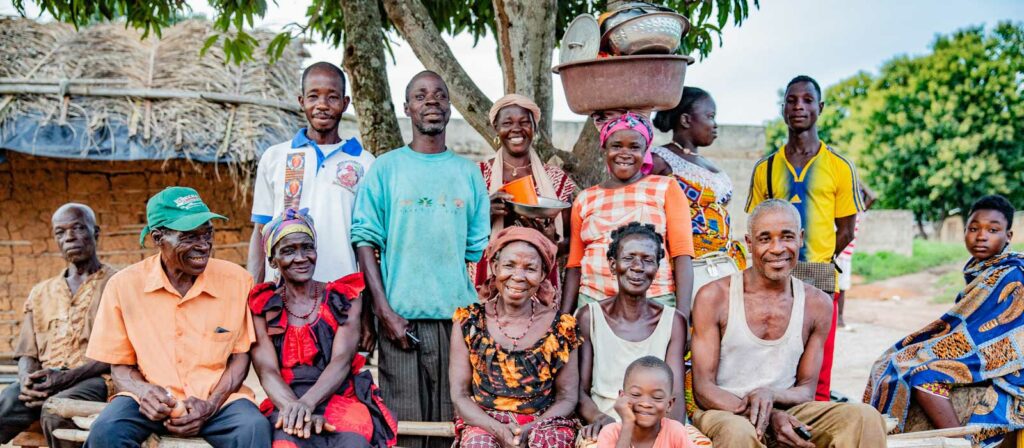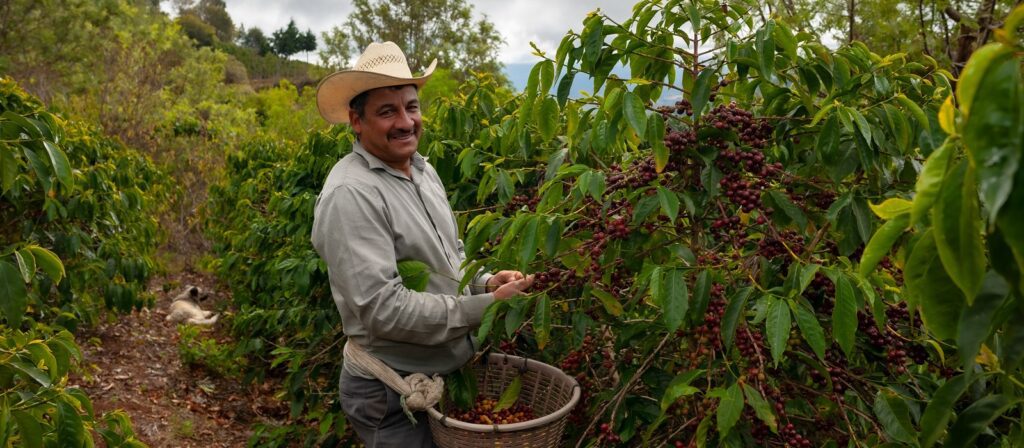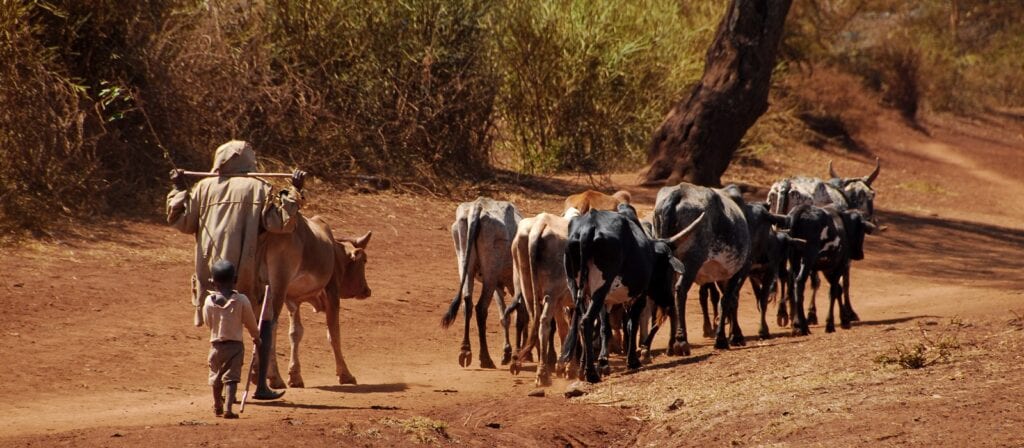In the past 150 years, half of the deadliest typhoons to hit the Philippines occurred in the last two decades. Farmers are particularly at risk to these natural disasters and many do not have access to affordable insurance and where it is available, claims often take a long time to be paid out. CLIMBS (Philippines) in partnership with fellow ICMIF member IBISA Network (Luxemburg), Global Parametrics (UK), and the International Centre for Tropical Agriculture (CIAT), made available an affordable parametric weather insurance product which uses 24/7 satellite monitoring and pays out to policyholders within 15 days of a severe weather occurrence without the need to file a claim or in person assessments.
The challenge
The Philippines is the country most at risk from the climate crisis, according to a 2019 report by the Institute for Economics and Peace1. Located in the Pacific “Ring of Fire”, it is susceptible to earthquakes, volcanic eruptions and, medium and largescale natural disasters such as floods, droughts, and typhoons. Many Filipinos are affected with farmers and agri-preneurs particularly at risk. In 2021 alone, the agriculture sector in the Philippines suffered PHP 19.38 billion in production loss, 93.6% of which was due to typhoons, droughts and other climate related disasters2.
Farmers are often among the poorest and most vulnerable populations with an average age of 603 and an average annual income of around USD 2,000, well below the poverty line4. Financial institutions are reluctant to finance farmers due to the perceived risk associated with farming and weather disasters. Because of this chronic underinvestment, techniques which support resilient development are not being developed and farmers are even more vulnerable.
In the Philippines, those involved in the agricultural sector account for around 26% of total employment5 and typhoon-related damage to the agricultural sector is estimated at an annual USD 136 million, an amount which increases every year. Given the devastating impact these extreme weather events have on the agricultural sector, crop insurance has become a top priority for CLIMBS Life and General Insurance Cooperative. However, even with the relevant regulatory framework in place for CLIMBS to be able to offer crop insurance, in practice it is challenging to provide a comprehensive, affordable, and accessible product for farmers that is commercially viable in the long term.
CLIMBS previously offered a Weather Protection Insurance product to farmers in the past but ceased the offering in 2013 as it met with several challenges. Satellite data was not as sophisticated as it is now and there was a need to create more awareness of an index-based parametric insurance. On the other hand, using a traditional, indemnity-based insurance approach, validating a claim required an in-person visit to the affected farm to make a loss assessment which is also resource intensive for CLIMBS. Furthermore, the time it took to make the loss assessment and process the claim meant that claims were typically being paid three months after the weather event occurred which was not aligned with the needs of the farmers.

The solution: climate-risk protection with transparent and faster payouts
Despite these challenges, CLIMBS identified several partners that were interested in trying to develop an innovative and sustainable mutual crop insurance product to build resilient communities in the Philippines. CLIMBS provided the agri-insurance product to its member cooperatives with agricultural loan portfolios, starting with a pilot phase including five of its member cooperatives with technical support from ICMIF and its wider network of industry experts. IBISA Network provided a platform for development, distribution and management of innovative parametric products. Global Parametrics facilitated reinsurance and provided technical assistance for the project. CIAT’s research and impact evaluations will be used to refine and develop products based on the results of their research.
The overall project purpose was to help cooperatives and agri-preneurs build resilient and sustainable communities and climate action through digital solutions. This was broken down into the following objectives:
- Protection of the USD 7,110,500 loan portfolio of farmers.
- Financial growth of the cooperative bank and local economic growth.
- Offer insurance coverage through digital solutions that provides livelihood protection and enhances the resilience of farmers.
- Scale and refine parametric-based multi-risk product for drought, excess rain and other risks.
The result
In the third quarter of 2021, CLIMBS along with the their project partners launched a parametric insurance product that protects cooperatives from the effects of excess rainfall. Using satellite data to monitor precipitation levels in the insured provinces, a threshold limit was set based on historical data analysis. If the amount of rain in a particular location exceeded the pre-established threshold, the affected cooperative automatically received a payout. Payouts were visible immediately on IBISA Network’s onboarding and policy management platform. CLIMBS and the participating cooperatives were able to use the dashboard to check for any trigger, helping to increase transparency. The use of satellite data limits the need for in-person claim assessments in the field.
The cooperatives that participated in the project pilot are situated in the Visayas and Mindanao regions, areas which have been heavily devastated in the past by super typhoons such as Haiyan in 2013, and tropical storms Washi and Bopha in 2011. Through this product, the five cooperatives that took part in the pilot could insure their loan portfolios. The weather index-based product provided coverage against excessive rainfall in the locations of the cooperative members.
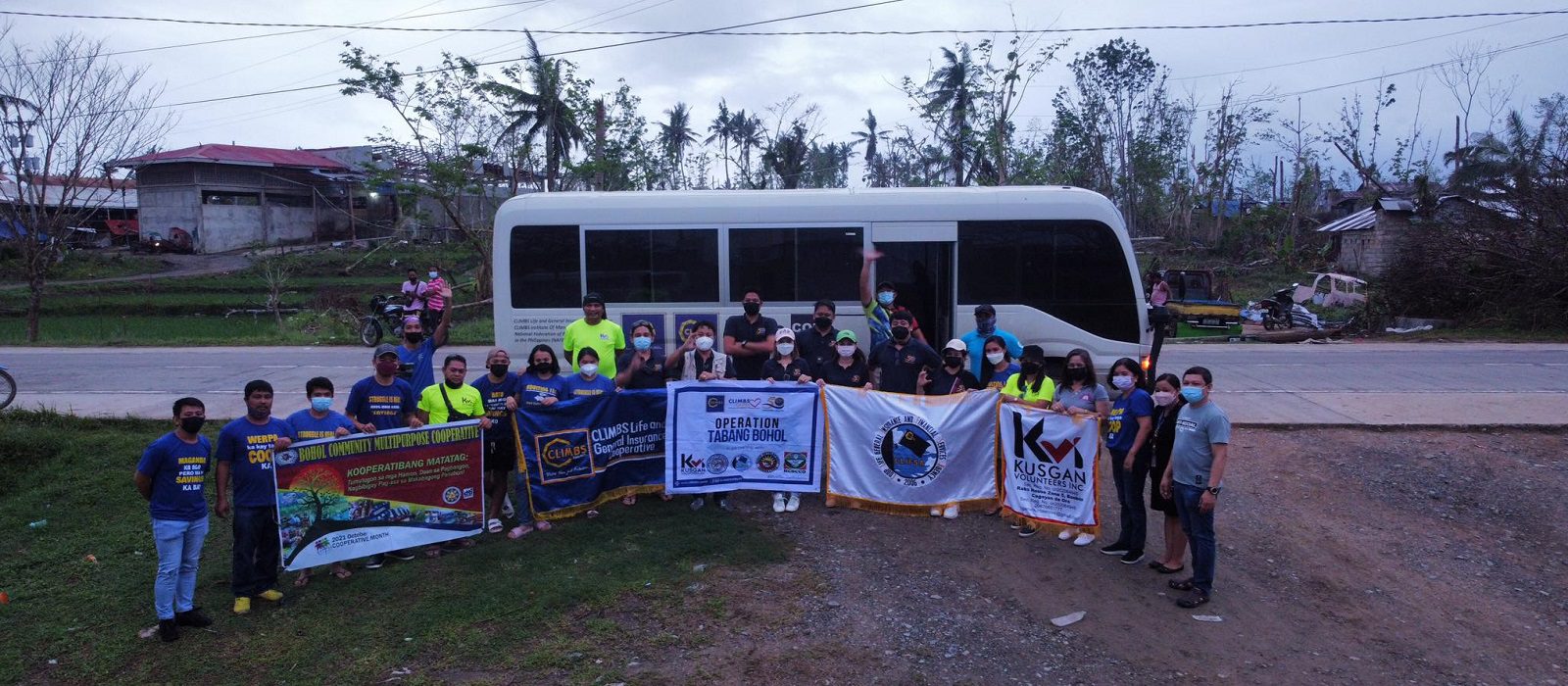
The first payout was made in December 2021, within 10 days of the date that typhoon Rai, also known as Typhoon Odette, struck the affected areas and benefitted approximately 2,000 farmers. During the first year of the project, CLIMBS protected approximately 3,600 farmers from 14 cooperatives in 15 provinces in these regions, impacting 18,000 household members in these communities6.
The product was tailor-made fit local needs and translated into local narratives. Validation at grassroot level is helping build trust in insurance products again, ensuring there is sustainable cooperation between stakeholders and partners. The product also supports the government in insuring the agriculture sector, as well as supporting their Sustainable Development Goals, specifically SDG 1, 2, 9, 12, 13 and 17.
In the second year of the project, CLIMBS intends to scale up to 36,000 farmers from 42 provinces; then in the third year 72,000 farmers from 62 provinces, and by the fourth year, they aim to insure 144,000 farmers nationwide. This refinement and expansion of this project is also now co-funded by the InsuResilience Solutions Fund (ISF).
(1) Global Peace Index 2019 available here Global Peace Index 2019 - World | ReliefWeb
(2) Department of agriculture 2021 annual report available here DA Annual Reports | Official Portal of the Department of Agriculture
(3) DA annual report 2017 DA Annual Reports | Official Portal of the Department of Agriculture
(4) Family income and expenditure survey by the Philippine Statistics authority Highlights of the Preliminary Results of the 2021 Family Income and Expenditure Survey (FIES) Visit 1 | Philippine Statistics Authority (psa.gov.ph)
(5) Philippine Statistics Authority – 2016-2018 CountrySTATPhilippines – Philippine Statistics Authority (psa.gov.ph)
(6) With five members per household being the average size – Philippine Statistics Authority | Republic of the Philippines (psa.gov.ph)


Published March 2023
About CLIMBS
CLIMBS Life and General Insurance Cooperative, established at Cagayan De Oro in 1971, is a leading life and non-life microinsurance provider in the Philippines. Through the years, CLIMBS leads and strengthens its advocacy in providing insurance protection especially for the grassroots of the country while upholding the cooperative principles as its way of doing business.
Founded in 1971, CLIMBS started by bringing mutual protection to its members as an alternative to insurance products offered by big traditional insurance companies. With increasing number of members who wish to be protected by insurance, throughout the years, CLIMBS offered more and more services to cover their increasing needs. It eventually ventured into partnerships with primary cooperatives nationwide through CoopAssurance Center (CAC) to become a distribution channel of insurance products and services to its members and, overall, as a financial solutions provider to cooperatives and their respective members.
About IBISA Network
IBISA (Inclusive Blockchain Insurance using Space Assets) is a platform built on a decentralized mutuality-based system that enables the sharing of farmer-to-farmer risks in a transparent and cost-efficient way, harnessing the use of blockchain, satellite earth observation data and index-based risk modelling. IBISA enables the next generation of insurance to solve the uninsurability of smallholder farmers, pastoralists and breeders, with active projects in Philippines, India, New Zealand, Guatemala, and West Africa.

